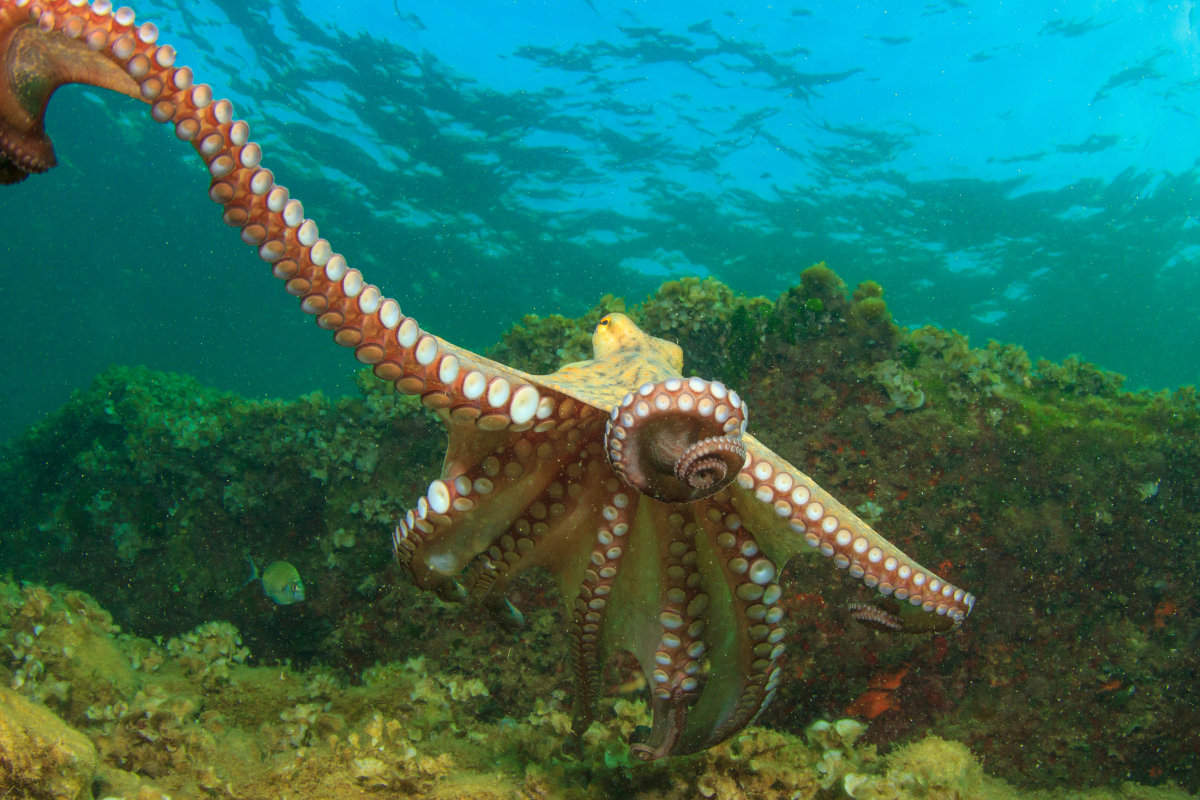First-ever ban on octopus farming
Washington State legislators leapt into action on Feb. 29 to protect one of nature’s most amazing creatures when they passed a bill that would ban octopus farming in the state. “The measure comes as a result of the seafood industry finding a method to viably farm octopuses, which has previously been impossible due to the animals’ complex needs,” reports Species Unite.
The octopus farming ban awaits Gov. Jay Inslee’s signature. Once signed into law, Washington State will become the first in the world to ban the practice.
Meanwhile, plans to open the world’s first octopus factory farm in the Canary Islands continue to move forward. The project, proposed by Spanish corporation Nueva Pescanova, has drawn widespread global criticism, adds Species Unite.
“Octopus farming leads to suffering and sickness for one of the more intelligent and feeling animals in our oceans,” said Representative Strom Peterson, one of the bill’s sponsors. “It can lead to huge environmental and ecological effects as well. Octopus farming is harmful to the animals and the environment and is unnecessary.”
A bridge to safety for Idaho wildlife
Friends of Animals has long championed the construction of wildlife crossings over busy roadways. Every year in the U.S. more than 1 million collisions between vehicles and large animals occur, killing countless animals, according to a report from the U.S. Department of Transportation.
That’s why we’re thrilled to hear that a long-abandoned overpass spanning I-90 in Osburn, Idaho, will be transformed into a safe passage for deer, elk, moose, bears, mountain lions, and a variety of smaller animals.
“The stretch of road from the east side of Coeur d’Alene to the Montana border has the second-highest density of roadkill anywhere along Interstate 90,” reports local CBS affiliate KREM2. Over the past 10 years, more than 75 animals have been struck along a two-mile stretch on either side of the unused span.
The bridge was built more than 50 years ago but never opened to vehicles. Soon, though, it will welcome lots of animal traffic—and at a cost significantly less than construction of a new wildlife crossing over the busy highway.
Playing matchmaker to save Florida’s queen conch
Decimated by overexploitation decades ago, the queen conch populations in the Florida Keys have never recovered. The queen conch’s imperiled status in its native waters of Florida, the Caribbean and Gulf of Mexico is why Friends of Animals fought so long for protections under the Endangered Species Act, a victory FoA and its allies secured in February.
But Florida’s surviving queen conch need even more help—and fast. That’s why a team of scientists led by the Florida Fish and Wildlife Conservation Commission will collect isolated groups of queen conchs from shallow waters off the Florida Keys and move them farther offshore where they can find mates to breed.
“While conchs near shore are reproductively challenged, those farther offshore—close to the coral reef—are doing much better,” reports Vox.com. Deeper water offshore is also less prone to temperature extremes and ever-more severe hurricanes, both exacerbated by the climate crisis.
Growing up to five pounds, the queen conch is prized for its distinctive flared spiral shell with blunt spikes and pearly pink or orange interior, and, tragically, its meat. Conchs are now so rare in the Florida Keys that putting an end to fishing hasn’t been enough to restore populations. “To survive, they need scientists to play matchmaker,” writes Benji Jones of Vox.

